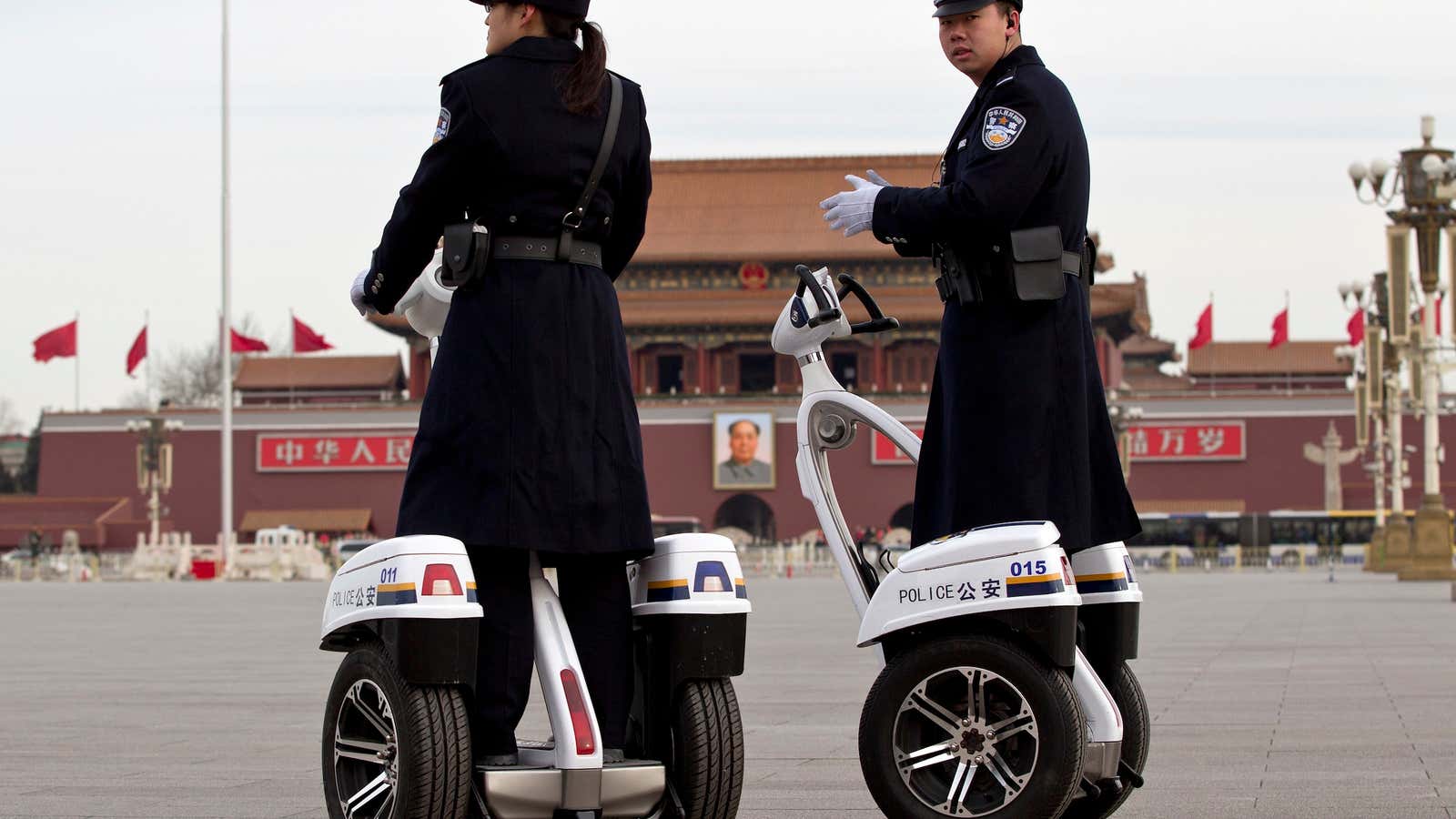It may get increasingly difficult for Western media and technology firms to operate in China. That is because of a two-pronged campaign against Western media and the tech companies that make the devices on which the Chinese consume their news and entertainment.
On March 15, Chinese state-run broadcaster CCTV aired a searingly critical documentary about Apple’s customer service.
At around 8:20 p.m., just after the broadcast, Chinese celebrities started bashing Apple on Twitter-like microblogging site Weibo. This began looking orchestrated when Taiwanese American actor Peter Ho seemed to accidentally leave the instruction “post around 8.20” on his Weibo comment.
China’s just-installed president Xi Jinping and his cabinet seem to be becoming hostile to US tech companies as a way of championing their domestic rivals. Separately, the nation’s new leaders also want Western media to quit reporting on China’s inequality and official corruption. Having not been chosen by the public, they are paranoid about coverage that may affect their credibility.
CCTV’s Apple documentary claimed the company charged Chinese users for replacing faulty iPhone back covers, when it does this in other countries for free. Instead of denying this, Apple responded with a bland statement on its Weibo page (Chinese, registration required) saying “we attach high importance to all consumers’ feedback and comments.”
Many Chinese netizens criticized CCTV instead of Apple. “Talk about avoiding the big issues,” this comment by one Weibo user that was representative of many said. “Focusing on Apple when we are breathing polluted air…drinking poisoned milk [a reference to this ongoing scandal].”
The latest Chinese offensives against Western media and tech companies have included:
Potential allegations of bribery against the Wall Street Journal. The newspaper says an unidentified whistleblower told the US Justice Department its reporters bribed Chinese officials, and that its own investigation found no evidence to support those claims. The allegations related to the WSJ’s stories about the suspicious death of a British businessman connected to fallen senior Chinese politician Bo Xilai. These were reports the Beijing administration likely would have preferred to suppress, and the Journal reported that “some company officials suspect the informant was an agent of the Chinese government.”
Lashings of criticism against Google and Android. A consultancy that seems sympathetic to Beijing said last week that most apps on Chinese smartphones were tracking users’ private data. This looked like a veiled attack on Google’s operating system, Android, which has a 90% market share in China. The study by the Data Center of China Internet appeared days after China’s Ministry of Finance slammed Android for being too dominant, in a paper that praised the US company’s Chinese rivals.
Sky News reporter arrested while broadcasting live: Sky News reporter Mark Stone was detained last week in the middle of a live broadcast from Beijing’s Tianenmen Square after he mentioned the student-led protests in the square in 1989 that led to a bloody crackdown. Stone continued broadcasting from inside the police van.
Evidence that foreign broadcast signals are being jammed.
Suspected hacking of Apple and Facebook. In February, the two US media giants were hit by similar virus attacks that were suspected of coming from China, Reuters reported. This occurred at around the same time that American security consultancy Mandiant said the Chinese military was responsible for a slew of attacks on US businesses.
